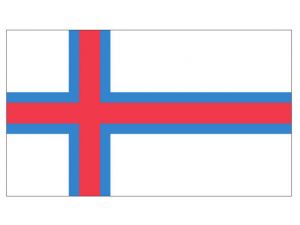Language/Faroese/Grammar/Simple-Past-Tense
Faroese language is a North Germanic language spoken mainly in the Faroe Islands, an archipelago located between Iceland and Norway. Faroese has a rich cultural history, with deep roots in Nordic mythology and folklore, and learning the language is a gateway to understanding the fascinating traditions and customs of the Faroe Islands. In this lesson, you will learn how to form the simple past tense in Faroese, including regular and irregular verbs, and practice using the grammar with examples.
Simple Past Tense
The simple past tense is used to indicate a completed action in the past. In Faroese, regular verbs form the simple past tense by adding the suffix -a to the infinitive form of the verb. Irregular verbs, on the other hand, have specific past tense forms that do not follow a regular pattern. Let's take a look at some examples:
Regular Verbs
Regular verbs in Faroese follow a predictable pattern in the simple past tense:
| Faroese | Pronunciation | English |
|---|---|---|
| dansa | ['dansa] | danced |
| tala | ['tala] | talked |
| spæla | ['spai:la] | played |
| fara | ['fara] | went |
| arbeitt | ['aɹbɛit] | worked |
As you can see, the simple past tense of regular verbs is formed by adding -a to the infinitive base.
To make negative sentences in the simple past tense, Faroese uses the auxiliary verb "hava" (to have) in the past tense, followed by "ikki" (not) and the past participle of the main verb. For example:
| Faroese | Pronunciation | English |
|---|---|---|
| Eg dansaði ikki | [ɛi: ['dansa:ði] 'iki] | I did not dance |
| Tú talaði ikki | [tiw ['tala:ði] 'iki] | You did not talk |
| Hann spældi ikki | [han ['spa:i:ldi] 'iki] | He did not play |
Irregular Verbs
Irregular verbs in Faroese have specific forms in the simple past tense that do not follow a regular pattern. Here are some examples:
| Faroese | Pronunciation | English |
|---|---|---|
| vera | ['vɛ:a] | was |
| síggja | ['siɛja] | saw |
| gjalda | ['jaldia] | paid |
| fara | ['fa:ra] | went |
| lesa | ['lɛsa] | read |
As you can see, irregular verbs have unique past tense forms that must be memorized. Notice that the past tense of "vera" (to be) is "var," which is similar to the past tense of the English verb "was."
To make negative sentences in the simple past tense with irregular verbs, the same structure as regular verbs is used. Here are some examples:
| Faroese | Pronunciation | English |
|---|---|---|
| Eg var ikki heima | [ɛi: [va:r] 'iki ['hɛima]] | I was not home |
| Tú sást ikki | [tiw [sa:st] 'iki] | You did not see |
| Hann jaldi ikki | [han ['jaldi] 'iki] | He did not pay |
Practice
Here are some exercises to practice forming the simple past tense in Faroese:
1. Form the simple past tense of the following regular verbs in Faroese: a. Sjóna (to see) b. Hjálpa (to help) c. Spyrja (to ask) d. Dansa (to dance) e. Fara (to go)
2. Fill in the blank with the appropriate past tense form of the verb given in parentheses in Faroese: a. Tú _____ eitt gott starv. (arbeitta) b. Hetta _____ einki ov dýrt. (kosta) c. Hann _____ aldri sýnt mær hesa bókina. (sýna) d. Eg _____ ikki til Toronto. (fara) e. Hesi barnini _____ leikt saman í mong ár. (leika)
3. Translate the following sentences into Faroese using the simple past tense: a. I saw a movie last night. b. She talked to me on the phone yesterday. c. They played soccer on Saturday. d. He went to the store after work. e. We worked late last night.
Conclusion
Congratulations! You have learned how to form the simple past tense in Faroese, including regular and irregular verbs, and practiced with examples. Keep practicing and integrating this new grammar structure into your overall Faroese language skills. In the next lesson, we will explore the past continuous tense, which is used to describe ongoing actions in the past.

